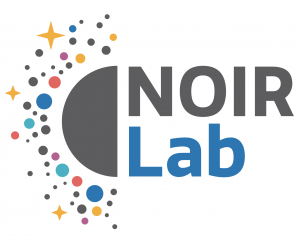Podcaster: Rob Sparks. Guest: Stephanie Juneau

Title: The First Year DESI Results
Organization: NOIRLab
Links: https://www.facebook.com/NOIRLabAstro ; https://www.instagram.com/noirlabastro/ ; https://www.youtube.com/noirlabastro ; @NOIRLabAstro
NOIRLab Press Release: https://noirlab.edu/public/news/noirlab2408/
DESI 2024 in the News: Science Communicators Discuss the Cosmology Results from DESI’s Inaugural Year
DESI 2024 in the News: Is Dark Energy Weakening? New Uncertainty Invites Optimism About the Fate of the Universe
Description:
Dark energy is a mysterious force that is causing the expansion of the universe to accelerate. The Dark Energy Spectroscopic Instrument (DESI) attached to the Nicholas U. Mayall Telescope at Kitt Peak National Observatory is currently measuring the redshifts to tens of millions of galaxies to help unravel the mystery of dark energy. In this podcast, NOIRLab’s Stephanie Juneau talks about the results from the first year of observations with DESI.
Bio: Rob Sparks is in the Communications, Education and Engagement group at NSF’s NOIRLab in Tucson, Arizona
Stephanie Juneau is an astronomer at NSF NOIRLab, and a data scientist for the Astro Data Lab. She obtained her BSc and MSc in physics from the Université de Montréal, and her PhD from the University of Arizona in 2011. She then moved to CEA-Saclay in France, where she started as a Marie Curie fellow before becoming staff researcher in 2012. She moved back to Tucson, Arizona in 2016 to join the scientific staff at NSF NOIRLab.
Dr. Juneau’s expertise lies primarily in the field of supermassive black hole and galaxy evolution. She is interested in answering questions about the growth of galaxies and that of the black holes that reside in their centers, as well as the interplay between the two. Her work brings together multiwavelength observations, close comparison with numerical simulations, and ranges from detailed case studies to statistical analysis of large datasets. As a member of the DESI and Euclid collaborations, she is particularly excited about leveraging millions of galaxy and quasar spectra to further our understanding of the black hole-galaxy connection and expand to larger scales.
End of podcast:
365 Days of Astronomy
=====================
The 365 Days of Astronomy Podcast is produced by Planetary Science Institute. Audio post-production by Richard Drumm. Bandwidth donated by libsyn.com and wizzard media. You may reproduce and distribute this audio for non-commercial purposes.
This show is made possible thanks to the generous donations of people like you! Please consider supporting to our show on Patreon.com/365DaysofAstronomy and get access to bonus content.
After 10 years, the 365 Days of Astronomy podcast is entering its second decade of sharing important milestone in space exploration and astronomy discoveries. Join us and share your story. Until tomorrow! Goodbye!

